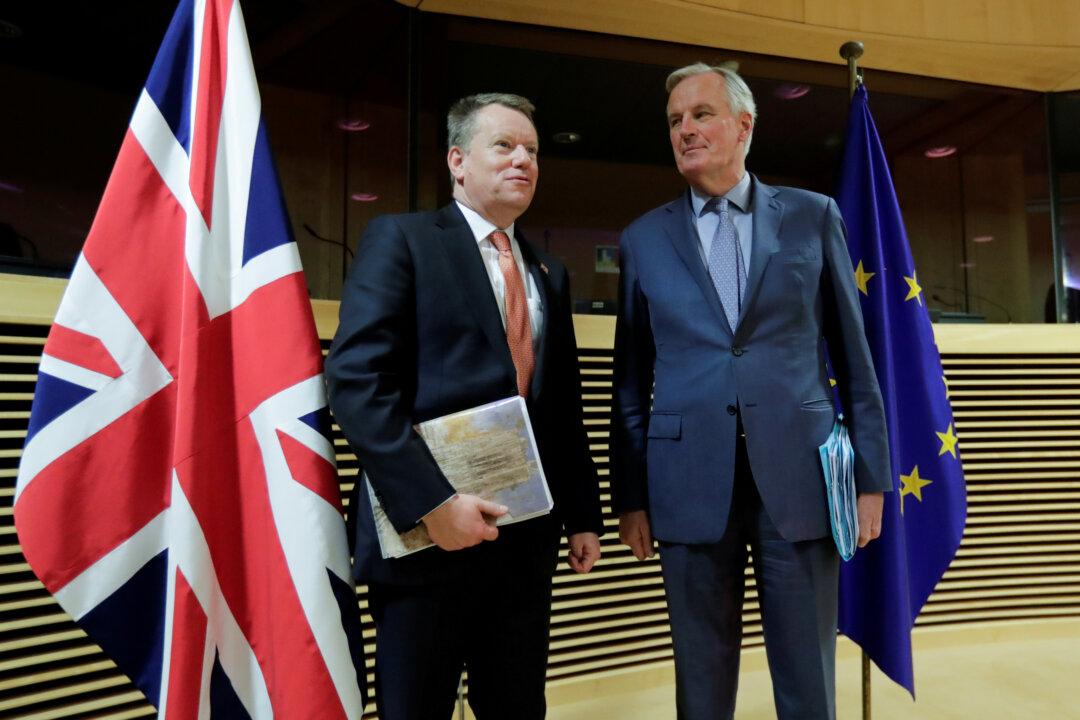The UK and the European Union on Saturday published the agreement they reached on Christmas Eve on their post-Brexit trade relations, which is expected to come into effect on Jan. 1 after the end of the Brexit transition period.
David Frost, Britain’s chief Brexit negotiator, announced the publication of the EU-UK Trade and Cooperation Agreement on Twitter on Saturday morning, with a link to the text of the agreement published on the UK government website.





